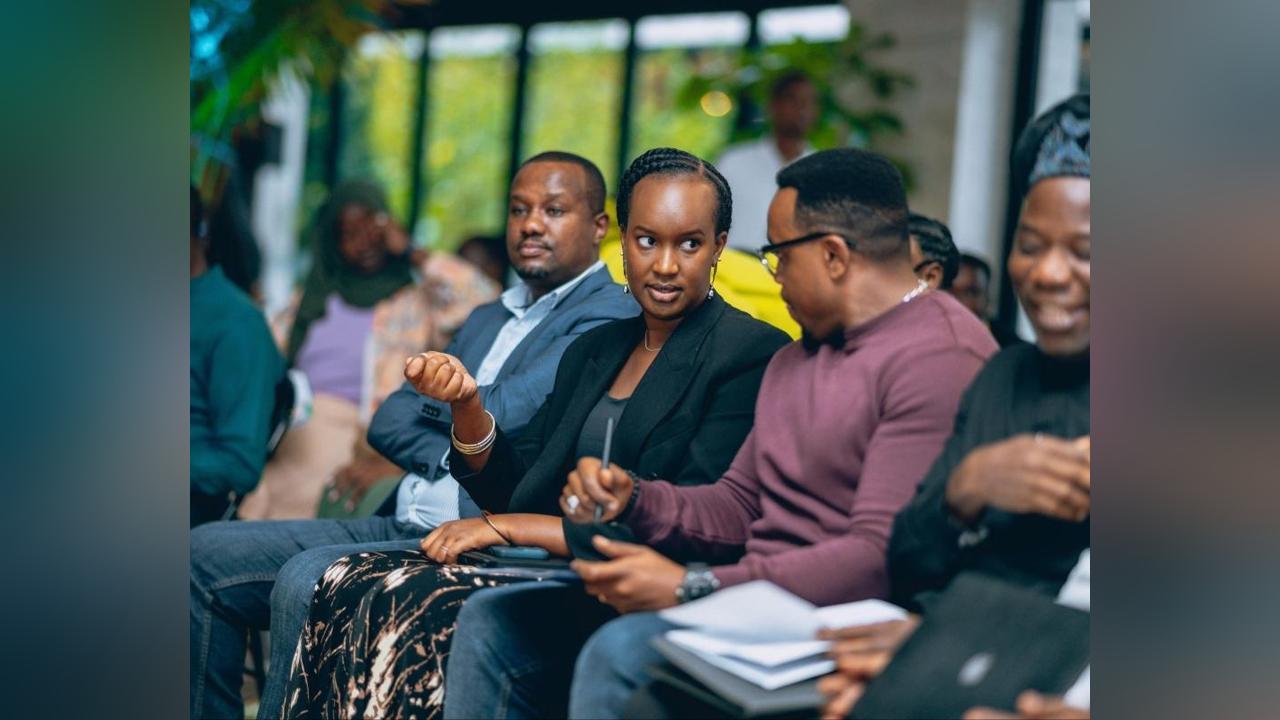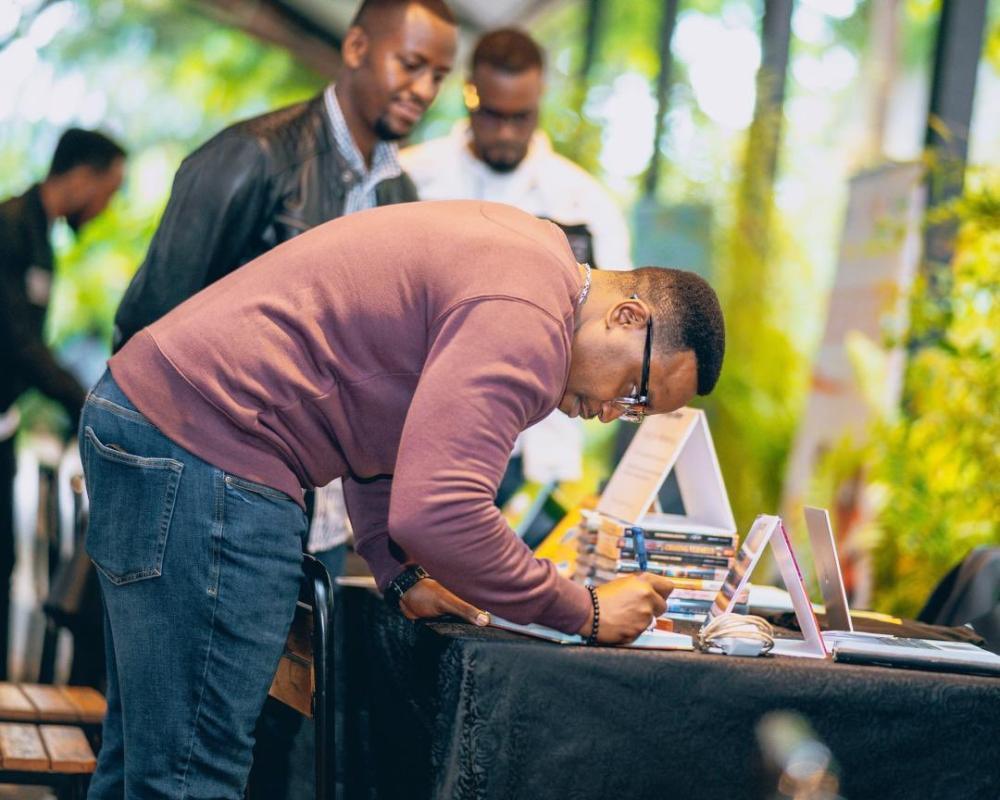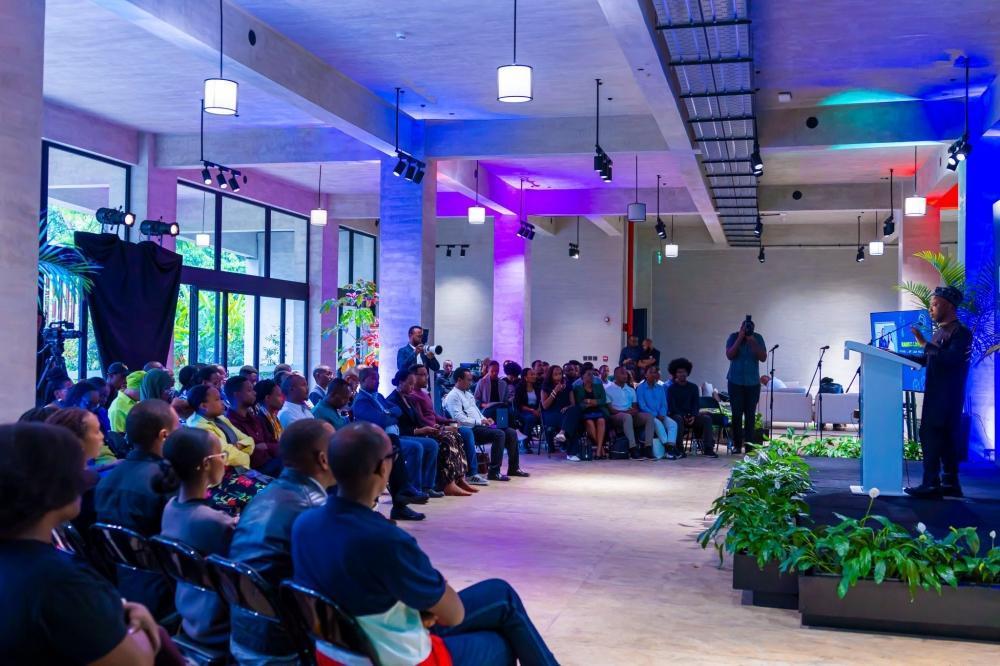Africa-Press – Rwanda. A year after receiving seed funding, top winners from the 2024 cohort of Imbuto Foundation’s Innovation Accelerator (iAccelerator) said they are optimistic about their projects’ sustainability and long-term impact.
The six startups, which collectively received $60,000 are driving innovative solutions to address sexual and reproductive health and mental health challenges in Rwanda.
Launched in 2016, iAccelerator supports young entrepreneurs with funding, mentorship, and training to develop solutions for issues such as adolescent sexual and reproductive health, family planning, maternal health, and mental well-being. The programme is implemented in partnership with the United Nations Population Fund (UNFPA), the Ministry of Youth and Arts, and Friends of Imbuto.
Brave Ngabo, the Permanent Secretary at Ministry of Youth and Arts during a tour of an exhibition at the event.
By promoting youth-led social entrepreneurship, the initiative seeks to expand access to health services, encourage healthy behaviors, and nurture creative solutions to societal challenges.
On Friday, October 10, Imbuto Foundation convened the 2024 cohort for an innovation fair that connected emerging social entrepreneurs with investors, strategic partners, and scaling opportunities. The event held at Norrsken House Kigali featured exhibitions, pitching sessions, and discussions on overcoming challenges in social enterprises, complemented by artistic performances.
Reflecting on her journey, Celine Dayeno Bizimungu, the Co-founder of Kozzy Wellness, said the experience has been transformative. Her startup promotes mental well-being among young people through both in-person and online services.
“It began as nothing more than a rough concept before we entered the competition, but since implementing the project after emerging among the winners, it has evolved into something tangible and promising in terms of sustainability,” Bizimungu said.
“Through our awareness campaigns and workshops in schools, communities, and workplaces, as well as a mental health app that links clients to professional counselors, we are beginning to witness a real, measurable impact.”
She added that the training received under the programme greatly enhanced their understanding of mental wellness while reinforcing the foundation of their business venture. “We are now moving beyond the pilot phase, and the progress is truly encouraging,” she said, expressing gratitude to Imbuto Foundation for “not only providing financial support but also accompanying us at every step of the journey.”
Fabrice Hakizayezu, the Co-founder of Nyigisha Initiative, a youth-led social enterprise that produces educational comics on reproductive health, said the programme has helped his team grow both creatively and professionally.
“We create comic stories inspired by real-life experiences to make reproductive health information more accessible to young people,” he explained. “Events like this help us connect with investors and institutions that can support our mission. Today, someone even approached us for collaboration after hearing about our work.”
Hakizayezu admitted the beginning was challenging, as their work initially faced rejections over quality and validation issues. However, he said the project has since gained traction and the journey looks more promising.
He also acknowledged the societal stigma that often surrounds discussions about sexual and reproductive health.
“Because of the sensitivity around the topic, some people view our work as promoting sexual activity among youth,” he said. “In reality, our goal is to equip young people with accurate information to prevent the negative consequences of misinformation. Parents and communities need to understand that this work serves a vital purpose.”
Marie Ange Raisa Uwamungu, the founder of Impanuro Girls Initiative, an organisation that empowers young women through mental well-being and job creation, shared that it took her five years of trial and error before her project finally came to life and received recognition and support.
She encouraged other innovators to seize such opportunities, noting that they are rare and highly valuable.
“Not everyone gets the chance to have their idea supported right from the start. Personally, I spent five years trying and failing before I was fortunate enough to find supporters. Mentorship, too, is an added advantage in such supportive ecosystems, where an idea is guided through to implementation, something not everyone is privileged to have.”
Elodie Shami, the Director General of Imbuto Foundation, praised the measurable contribution of the startups, describing them as “a proof of what young people can achieve when given trust, guidance, and space to innovate.”
“What you see here today is more than entrepreneurial potential,” she said. “It is lives being transformed, stigma being broken, and communities growing together. With continued support, these initiatives can move beyond Rwanda’s borders, as some already have, inspiring change across Africa and the world.”
Olivier Brave Ngabo, the Permanent Secretary in the Ministry of Youth and Arts, commended the innovators for aligning their efforts with government plans, such as the National Strategy for Transformation (NST2), a five-year programme that runs until 2029.
“They are bringing solutions and creating jobs, which aligns with the NST2 goal of creating over 250,000 jobs every year,” he said. “The journey continues, and we encourage the youth to keep thinking boldly and developing solutions.”
Officials and participants pose for a group photo at tehe event at Norrsken on Saturday, October 11. Courtesy


For More News And Analysis About Rwanda Follow Africa-Press








